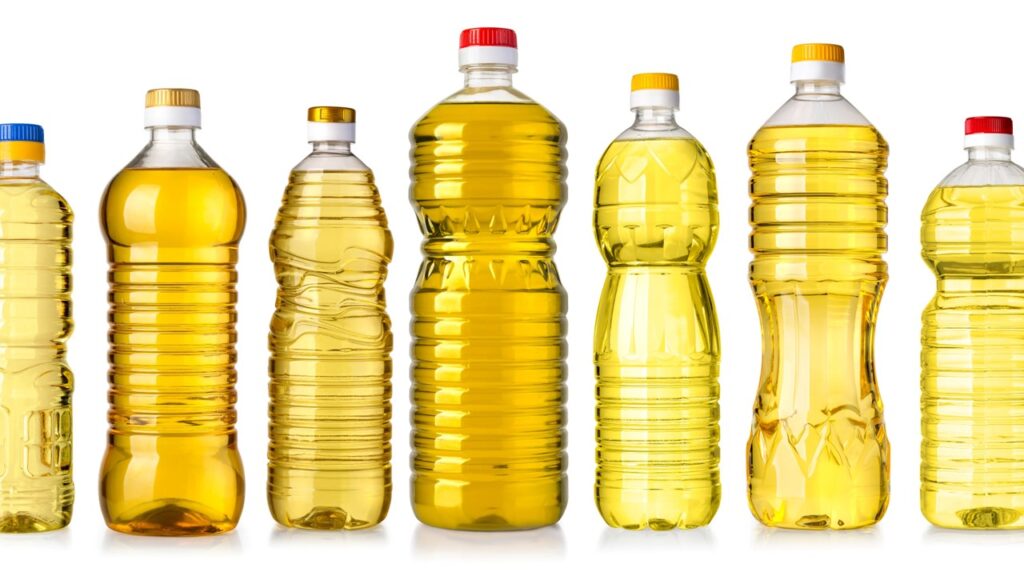
At Mercola.com, Dr. Joseph Mercola explains that vegetable oil will “wreck your gut.” He writes:
You may have heard about how bad vegetable oils are by now. But have you ever wondered why? My biggest beef with vegetable oils is that they negatively impact your metabolic rate and gut health — the two most important factors that impact your state of health.
So, yah. It’s kind of a big deal that our food system is centered around them. And that mainstream nutrition advice from Harvard still recommends vegetable oil as a “healthy fat” because it lowers serum cholesterol.
But what about the well-known fact that PUFAs (polyunsaturated fats) are very unstable molecules? (And vegetable oils are high in PUFAs, specifically linoleic acid, an omega-6).
“Polyunsaturated fatty acids (PUFAs) are highly susceptible to lipid per oxidation because of their unstable double bonds.1
PUFAs, in this sense, are like delicate glass … When glass shatters, it invariably leaves behind a mess of dangerous shards … Likewise, when PUFAs shatter they leave behind shards such as MDA, which are capable of damaging proteins, DNA and other structurally and functionally important components of our cells.” ~ Chris Masterjohn, Ph.D.2
Having more of these fats around creates a damaging internal environment in your body. Thus, there are long term negative health consequences with high PUFA consumption. Let’s discuss a few of these consequences.
Vegetable Oils Increase Gut Permeability
First, vegetable oils wreak havoc on the gut by increasing tight junction permeability.3 Tight junctions play an important role in intestinal barrier function by maintaining selective permeability. Well, unfortunately, PUFAs can increase the permeability of tight junctions. (Not what we want!)
In one study, the omega-6 PUFA rich diet increased host inflammation, oxidative stress, and gut barrier dysfunction:4
“The corn oil diet, rich in omega-6 polyunsaturated fatty acids, increased the potential for pathobiont survival and invasion in an inflamed, oxidized and damaged gut while saturated fatty acids promoted compensatory inflammatory responses involved in tissue healing.
We conclude that various lipids uniquely alter the host-microbe interaction in the gut. While high-fat consumption has a distinct impact on the gut microbiota, the type of fatty acids alters the relative microbial abundances and predicted functions. These results support that the type of fat are key to understanding the biological effects of high-fat diets on gut health.”
Read more here.
If you’re willing to fight for Main Street America, click here to sign up for my free weekly email.




